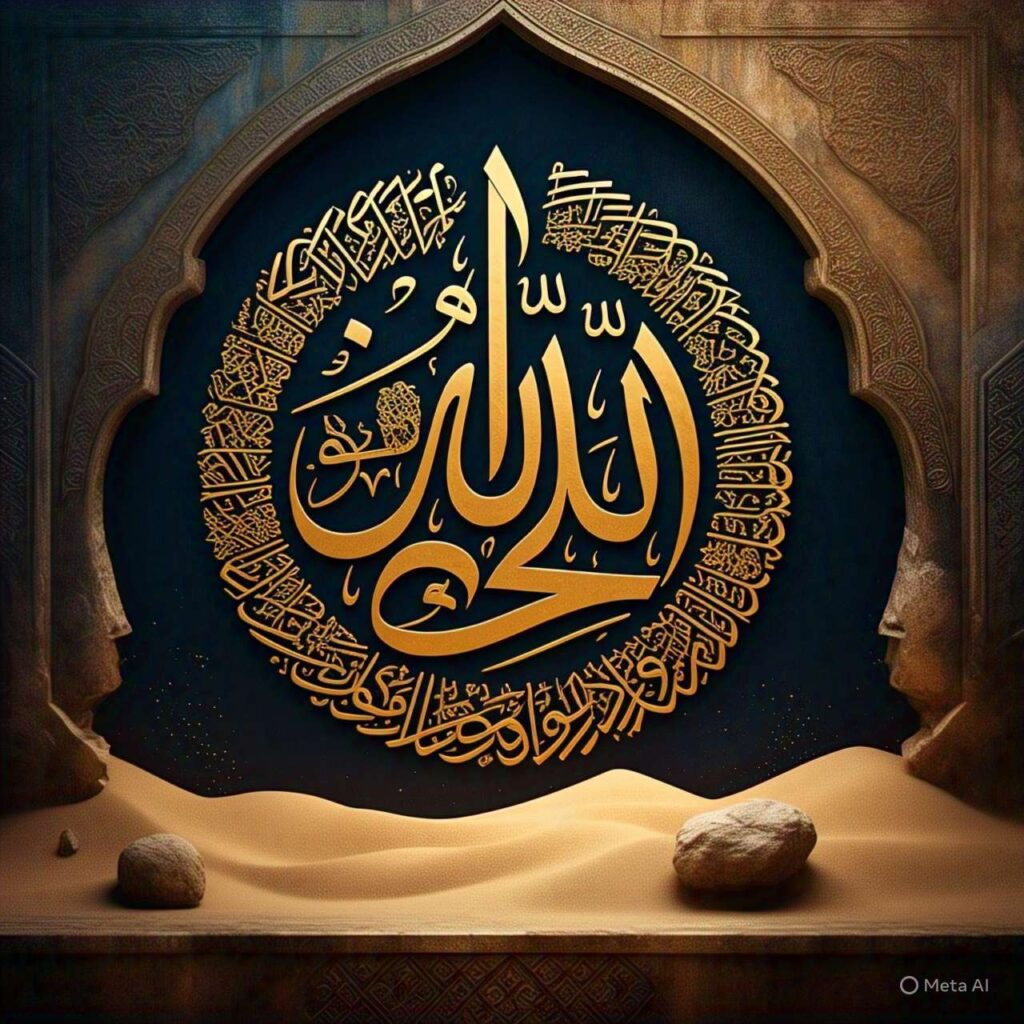What is the Primordial Covenant?
The Primordial Covenant (al-Mithāq) refers to a moment before our earthly existence when Allah gathered all the souls of humanity and made them testify to His Lordship. This is mentioned explicitly in the Qur’an:
“And [mention] when your Lord took from the children of Adam — from their loins — their descendants and made them testify concerning themselves, [saying to them], ‘Am I not your Lord?’ They said, ‘Yes, we testify.’ [This] — lest you should say on the Day of Resurrection, ‘Indeed, we were of this unaware.’”
(Surah al-A‘rāf 7:172)
In this verse, Allah tells us that before we were born into this world, all human souls were brought forth and acknowledged that Allah is their Rabb (Lord). This declaration forms the foundation of the fitrah — the pure, innate inclination toward recognizing and worshipping Allah that every human is born with.
What was the conversation?
The Qur’an describes the core exchange:
- Allah: “Am I not your Lord?”
- Souls of humanity: “Yes, we testify!”
This was not just a symbolic act; it was a conscious acknowledgment embedded into our souls. While we do not consciously remember this event, its effects are deeply imprinted within us — shaping our moral compass, our yearning for meaning, and our spiritual curiosity.
Why did Allah create this situation?
There are several profound reasons:
- To Establish Justice (ʿAdl):
Allah is perfectly just. On the Day of Judgment, no human can claim they were unaware of their responsibility toward God. The mithāq serves as a pre-eternal reminder, removing any excuse of ignorance. → “Lest you should say on the Day of Resurrection, ‘We were unaware.’” (Qur’an 7:172) - To Embed Fitrah:
The covenant implanted the fitrah within every soul — a natural disposition to seek truth, goodness, and God. Even without prophets, many humans instinctively sense right from wrong and are drawn toward the idea of a higher power. - To Set the Stage for Human Responsibility:
Humans were created as moral agents, capable of choice and accountable for their deeds. The covenant reminds us that our life is a trust (amānah), and this world is a test.
What does this mean for humans, jinn, and angels?
- Humans:
We have been given free will, reason, revelation, and reminders. The covenant ensures that worshipping Allah is not arbitrary but a fulfillment of our deepest nature. - Jinn:
While the Qur’an does not explicitly state that jinn were part of the mithāq, they too are moral beings accountable for their choices and have received divine guidance through prophets. - Mala’ikah (angels):
Angels do not have free will; they obey Allah perfectly. For them, the mithāq is not needed. However, they witness humanity’s test and marvel at Allah’s mercy, wisdom, and justice in dealing with free creatures.
️ What is the greater wisdom behind this?
- To highlight human dignity:
Allah honored humanity with consciousness, moral agency, and the ability to recognize truth — making us the crown of creation. - To test sincerity:
Allah tests who among us remembers this innate covenant, responds to the prophets, and fulfills their purpose. - To manifest divine attributes:
Through human history, Allah’s mercy, justice, forgiveness, guidance, and wisdom are all demonstrated.
Classical and Scholarly Commentary
- Ibn Kathīr:
Explains that this covenant was to cut off the excuse of ignorance and that the souls testified to Allah’s Lordship so that no one can deny it later. - Imam al-Ghazālī:
Describes the mithāq as the root of the human heart’s yearning for God, even if veiled by worldly distractions. - Ibn Taymiyyah:
Emphasizes the fitrah as part of this covenant — that every child is born upon it, but parents and society can influence their path.

